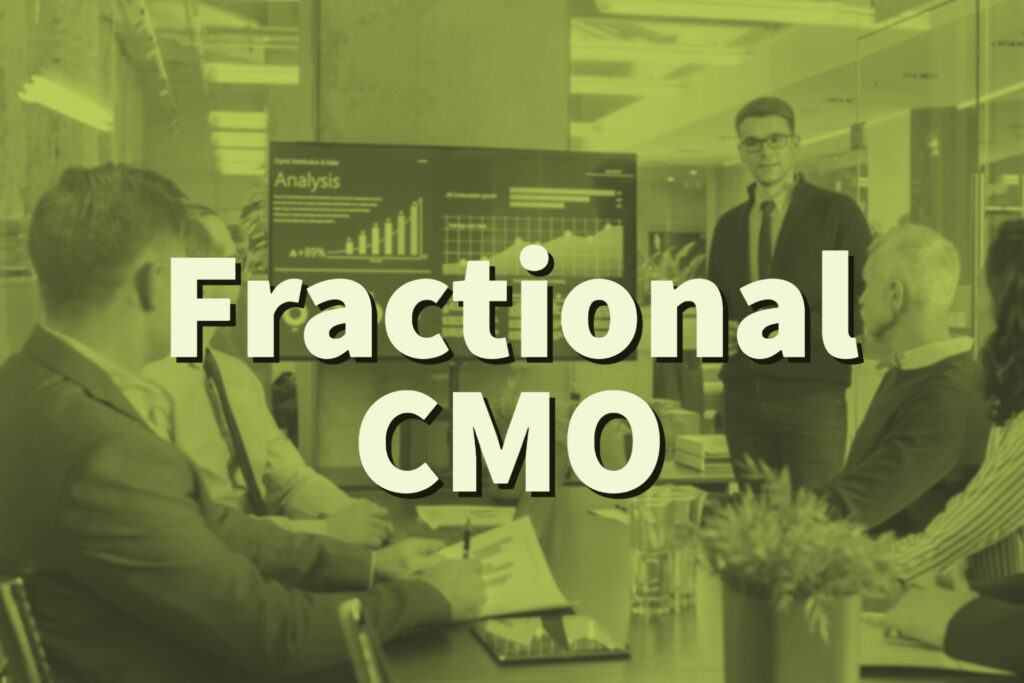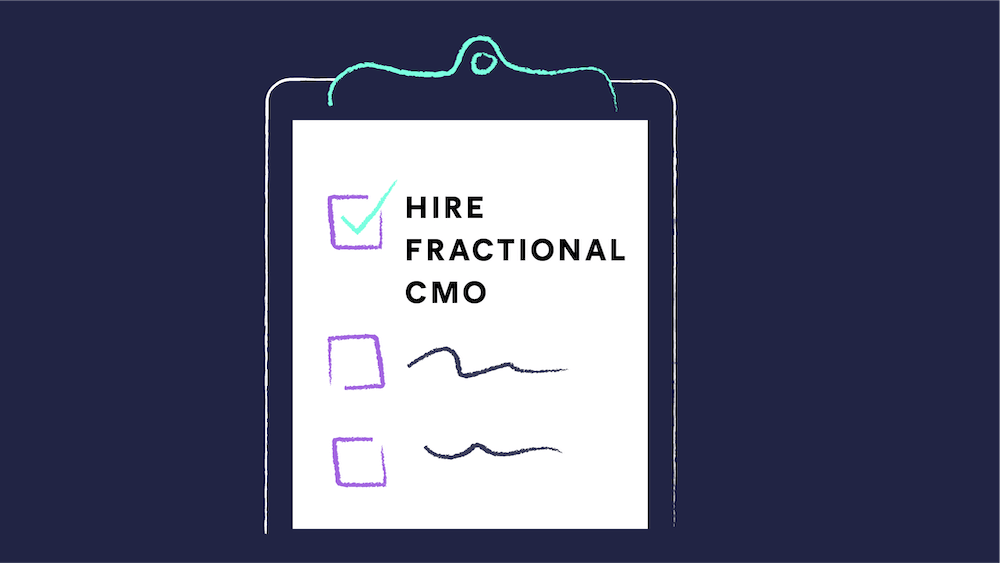In today’s dynamic business landscape, the demand for astute marketing leadership is relentless. Entrepreneurs and companies alike seek visionary marketing guidance without committing to full-time hires. This quest for expertise has spotlighted the rise of fractional Chief Marketing Officers (CMOs) – agile professionals providing strategic direction without the overhead costs. The journey to hire a fractional CMO is more than a hiring decision; it’s an investment in your brand’s growth and outreach. Let’s embark on a detailed exploration, illuminating every facet of this contemporary marketing strategy.
Table of Contents
- Understanding Fractional CMOs
- Advantages of Fractional CMOs
- How to Choose the Right Fit
- Leveraging Fractional CMO Services
- Case Studies: Success Stories
- Cost-Efficiency and ROI
- Navigating Challenges
- Ensuring a Seamless Collaboration
- The Future of Fractional CMOs
- FAQs: Clarifying Doubts
- Q: How do fractional CMOs differ from regular consultants?
- Q: Can smaller businesses benefit from fractional CMO services?
- Q: How does a fractional CMO impact existing marketing teams?
- Q: Are fractional CMOs cost-effective for startups?
- Q: Can a fractional CMO adapt to different industries?
- Q: How do I measure the success of engaging a fractional CMO?
- Conclusion: Embrace the Future
Understanding Fractional CMOs
What sets a fractional CMO apart? These professionals, seasoned in marketing strategies, operate on a part-time or project-based model. Their role extends beyond traditional consultants, diving deep into your company’s ethos, goals, and market landscape. A fractional CMO crafts tailored strategies, lending expertise at pivotal growth stages.
Advantages of Fractional CMOs
Enhanced Flexibility: Fractional CMOs adapt swiftly to changing market dynamics, adjusting strategies and tactics in real-time to optimize outcomes. Their agility enables businesses to pivot swiftly without the constraints of long-term commitments.
Specialized Expertise: These professionals often possess niche skills and deep industry knowledge. Leveraging this expertise empowers companies to address specific marketing challenges efficiently, tapping into diverse skill sets without the cost of maintaining a full in-house team.
Cost-Efficient Resource Allocation: By engaging a fractional CMO, businesses allocate resources more efficiently, focusing budgets on strategic initiatives while accessing top-tier talent on a fractional basis.

How to Choose the Right Fit
Cultural Alignment: Beyond skills and experience, ensuring a cultural fit is crucial. Look for a fractional CMO who aligns with your company values and work ethos to foster seamless collaboration and integration.
Client References and Testimonials: Gathering feedback from previous clients provides valuable insights into the CMO’s effectiveness. Seeking testimonials or case studies can validate their capabilities and success in delivering results.
Clear Objectives and Expectations: Define clear goals and expectations from the onset to align the CMO’s efforts with the company’s strategic vision. Clarity in objectives streamlines the working relationship and minimizes misunderstandings.
Leveraging Fractional CMO Services
Holistic Strategy Development: Beyond individual marketing campaigns, fractional CMOs contribute to overarching business strategies. They analyze market trends, competition, and consumer behavior to devise comprehensive strategies that align with broader business objectives.
Cross-Functional Collaboration: These CMOs often collaborate with various departments, fostering alignment between marketing efforts and other business functions. Their input extends beyond marketing, influencing product development, sales strategies, and customer experience initiatives.
Scalability and Adaptability: Fractional CMOs facilitate scalability by adjusting strategies to accommodate growth or market changes. Their adaptability ensures businesses can navigate evolving landscapes while maintaining a competitive edge.
Case Studies: Success Stories
Case studies provide vivid illustrations of fractional CMOs’ impact. For instance, one success story might highlight how a fractional CMO revamped a struggling brand’s image, leading to a 30% increase in market share. Another could detail how a fractional CMO spearheaded a digital transformation strategy, resulting in a significant boost in online sales and customer engagement.
Cost-Efficiency and ROI
Examining the financial aspect, consider scenarios where companies saved substantially by employing fractional CMOs. For example, a startup might showcase how engaging a fractional CMO instead of a full-time executive helped them allocate resources more efficiently, resulting in a 40% increase in ROI within the first year alone. Additionally, exploring comparative analyses between fractional and traditional CMO models could highlight the financial advantages of the former.
Navigating Challenges
Highlight potential hurdles in adopting a fractional CMO model, such as integration issues with existing company structures or resistance from internal teams. Discuss proactive strategies, like comprehensive onboarding processes or fostering open communication channels, to mitigate these challenges. Additionally, share anecdotes that illustrate how proactive measures preempted issues, ensuring smooth collaboration between the fractional CMO and the existing team.
Ensuring a Seamless Collaboration
Detail strategies that facilitate cohesive teamwork between fractional CMOs and in-house teams. This could include methods like establishing clear roles and responsibilities, fostering a culture of mutual respect and learning, or leveraging technology for efficient communication and project management. Real-life examples can showcase how these strategies led to productive collaborations, resulting in innovative campaigns and accelerated growth for businesses.
The Future of Fractional CMOs
Predict the trajectory of fractional CMOs by analyzing emerging trends in marketing, such as the increasing demand for specialized expertise and flexible workforce models. Discuss the potential integration of AI and data analytics into the role of fractional CMOs and how they might evolve to become key strategists harnessing cutting-edge technology for marketing success. Offer insights from industry experts or thought leaders on how fractional CMOs might adapt and thrive in the ever-evolving marketing landscape.

FAQs: Clarifying Doubts
Q: How do fractional CMOs differ from regular consultants?
A: Fractional CMOs integrate deeply into your company, providing ongoing strategic guidance beyond typical consulting arrangements.
Q: Can smaller businesses benefit from fractional CMO services?
A: Absolutely. They offer scalable solutions tailored to suit various business sizes and stages.
Q: How does a fractional CMO impact existing marketing teams?
A: They complement internal teams, offering expertise and strategic direction, fostering a collaborative environment.
Q: Are fractional CMOs cost-effective for startups?
A: Yes, startups can leverage their expertise without the financial commitment of a full-time CMO.
Q: Can a fractional CMO adapt to different industries?
A: Their adaptable skill set allows them to pivot and thrive across diverse industry landscapes.
Q: How do I measure the success of engaging a fractional CMO?
A: Metrics aligning with your business goals, such as increased ROI or brand reach, serve as indicators of success.
Conclusion: Embrace the Future
A fractional CMO’s transformative impact extends beyond just immediate solutions, fostering a culture of adaptability within organizations. Their collaborative approach not only navigates current market landscapes but also propels businesses toward proactive readiness for future shifts and challenges. Embracing this forward-looking model doesn’t just optimize the present; it cultivates a mindset that continuously evolves, positioning companies to thrive in an ever-changing marketplace.

